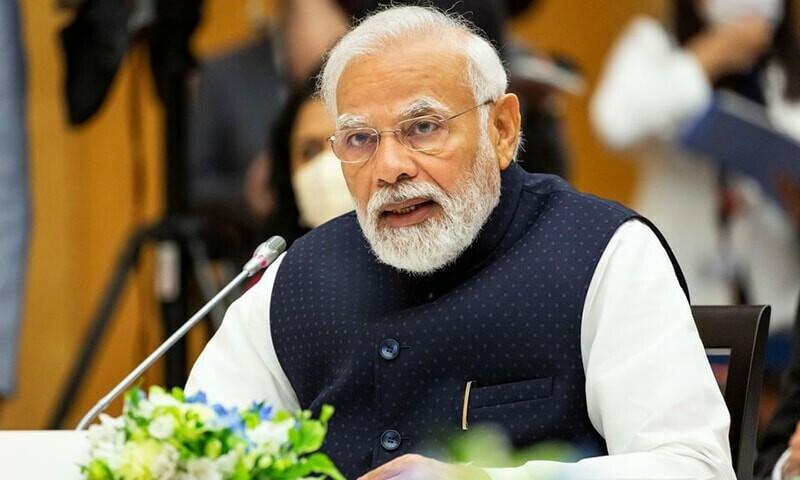Amid violence against minorities especially Muslims on the rise at the hands of Hindu nationalists in India, Prime Minister Narendra Modi has repeated New Delhi’s mantra asking Pakistan again to create a conducive environment free from terrorism and hostilities for normal and neighbourly relations with India.
Playing to the international audience while giving interview to Nikkei Asia, Modi, once dubbed as the “butcher of Gujarat by Pakistani Foreign Minister Bilawal Bhutto Zardari, addressed India’s complex relationships with its closest neighbours, China and Pakistan.
Regarding the ongoing border standoff with China, Modi affirmed India’s firm commitment to safeguarding its sovereignty and dignity. He emphasized that New Delhi upholds the principles of sovereignty, the rule of law, and peaceful dispute resolution.
The border tensions between the two nations have strained bilateral ties, particularly following a violent clash in 2020, which resulted in the deaths of 20 Indian soldiers, the first fatal conflict between the two nuclear-armed neighbours in decades.
Modi stressed the significance of peace and tranquillity in the border regions as prerequisites for normal bilateral relations with China. He stated that the future development of the India-China relationship should be based on mutual respect, mutual sensitivity, and mutual interests.
Normalizing ties, he added, would bring benefits not only to the wider region but also to the world at large.
Turning his attention to Pakistan, India’s archrival since the partition in 1947, Modi expressed his desire for normal and neighbourly relations between the two countries. However, he reiterated India’s oft-repeated position that it is incumbent upon Pakistan to create a conducive environment free from terrorism and hostilities. Modi placed the responsibility on Pakistan to take necessary steps in this regard.
“It is incumbent upon them to create a conducive environment free from terrorism and hostilities. The onus is on Pakistan to take necessary steps in this regard,” Nikkei Asia quoted him as saying.
Pakistan has trashed the Indian stance and earlier this month told India, “Let’s not get caught up in weaponising terrorism for diplomatic point-scoring”.
Speaking on India’s economy, Modi noted that it has been one of the world’s fastest-growing economies and stressed that the country has moved from being the 10th-largest economy in 2014 to now being the fifth-largest globally. He added that his government’s aim was to transform India into a developed nation within the next 25 years.
On the Russia-Ukraine conflict, Modi told the publication that India’s position on the Ukraine conflict “is clear and unwavering”.
“India stands on the side of peace and will remain firmly there. We are committed to supporting those who face challenges in meeting their basic needs, especially in the face of rising costs of food, fuel, and fertilisers. We maintain communication with both Russia and Ukraine,” he said.
“Cooperation and collaboration should define our times, not conflict,” he stressed.


